Ratan Tata Biography: Birth, Age, Education, Family, Successor, Net Worth, Awards, Quotes, and More
Ratan Tata, a name synonymous with integrity, vision, and philanthropy, was one of India’s most admired and respected industrialists. The former chairman of Tata Sons and the Tata Group, Ratan Tata played a pivotal role in transforming the Tata Group into a global business powerhouse. Throughout his life, Ratan Tata inspired millions with his ethical leadership, innovative thinking, and commitment to social responsibility. On October 9, 2024, India mourned the loss of this towering figure as Ratan Tata passed away at the age of 86, following complications related to age and health at Breach Candy Hospital in Mumbai.
This comprehensive biography sheds light on Ratan Tata’s life journey, from his early years and education to his success, legacy, and notable quotes, providing an in-depth look at the man behind one of India’s greatest business legacies.
Early Life and Birth
- Birth Date: December 28, 1937
- Place of Birth: Bombay (now Mumbai), British India
Ratan Tata was born into the illustrious Tata family on December 28, 1937. His father, Naval Tata, was a prominent figure in the business world, and his mother, Sooni Commissariat, hailed from a distinguished family as well. His childhood, however, was not without challenges. When Ratan Tata was just 10 years old, his parents separated, which led him to be raised by his grandmother, Lady Navajbai Tata, a towering influence in his life.
Growing up in a privileged environment, Ratan Tata was deeply influenced by the values of hard work, humility, and social responsibility that his family instilled in him. His upbringing laid the foundation for the exemplary leader he would later become.
Also Read: Ratan Tata’s Net Worth in INR: The Man Behind the Legacy, His Achievements, and His Philanthropy
Age and Education
- Age at Death: 86 years
- Schools Attended:
- Campion School, Mumbai
- Cathedral and John Connon School, Mumbai
- Bishop Cotton School, Shimla
- Riverdale Country School, New York City
Ratan Tata’s education journey was as remarkable as his career. He attended prestigious schools in India, including Campion School and Cathedral and John Connon School in Mumbai, followed by Bishop Cotton School in Shimla. His global exposure began when he moved to the United States for his higher education.
Ratan Tata pursued architecture and structural engineering at Cornell University, from where he graduated in 1959. Later, he completed the Advanced Management Program at Harvard Business School in 1975. His education abroad provided him with a unique perspective and a global vision that he would later apply to transform the Tata Group into a global conglomerate.
| Institution | Degree | Year |
|---|---|---|
| Cornell University | Bachelor of Architecture | 1959 |
| Harvard Business School | Advanced Management Program | 1975 |
Family and Personal Life
Parents:
- Father: Naval Tata
- Mother: Sooni Commissariat
Ratan Tata’s family life was marked by significant events that shaped his personal values. His father, Naval Tata, was an adopted son of Sir Ratanji Tata, a member of the Tata family. Despite being adopted, Naval Tata played a significant role in the Tata family and was deeply involved in the business empire. Ratan Tata’s mother, Sooni Commissariat, separated from his father when he was a child, which led him to be raised primarily by his grandmother.
Ratan Tata had a close relationship with his half-brother, Noel Tata, who is also a prominent figure in the Tata Group. Another member of the family, Jimmy Tata, has largely remained out of the limelight. Despite belonging to such an influential family, Ratan Tata maintained a humble and private lifestyle.
Personal Life and Relationships
Ratan Tata was known for his reserved nature and private life. Throughout his life, he never married, although he once shared that he came close to marriage four times. In a candid interview, he revealed that while he was living in the United States, he fell in love with a girl in Los Angeles. However, he had to return to India due to family obligations, and circumstances ultimately prevented the marriage. Despite his decision to remain unmarried, Ratan Tata’s compassion and empathy for people were always evident through his philanthropic efforts.
Ratan Tata’s famous quote on marriage: “I came close to getting married four times, and each time I backed off in fear or for one reason or another.”
Business Career and Succession
Predecessor: JRD Tata
Successor: Natarajan Chandrasekaran
Ratan Tata’s career at the Tata Group began in 1961 when he joined Tata Steel. Unlike many who rise to the top through family connections, Ratan Tata started from the bottom, working on the shop floor in Jamshedpur, gaining hands-on experience. His journey to the top of Tata Sons was not without challenges, but his perseverance, vision, and innovative thinking helped him succeed.
In 1991, Ratan Tata succeeded JRD Tata as the chairman of Tata Sons. Despite initial skepticism from many senior executives within the group, Ratan Tata brought a new wave of innovation and expansion to the conglomerate. Over the course of his tenure, he transformed Tata Group into a global entity, acquiring prominent international brands and streamlining the group’s operations.
Some of the most notable milestones under his leadership include:
- Acquisition of Tetley by Tata Tea
- Acquisition of Jaguar Land Rover by Tata Motors
- Acquisition of Corus Steel by Tata Steel
- Launch of the Tata Nano, the world’s cheapest car
In 2012, Ratan Tata stepped down as chairman of Tata Sons at the age of 75, handing over the reins to Cyrus Mistry. However, Mistry’s leadership was short-lived, and in 2016, Ratan Tata returned as interim chairman. Eventually, in January 2017, Natarajan Chandrasekaran was appointed as the new chairman of Tata Sons.
| Chairmanship Timeline | Role | Successor |
|---|---|---|
| 1991–2012 | Chairman of Tata Sons | Cyrus Mistry (succeeded, later removed) |
| 2016–2017 (interim) | Interim Chairman | Natarajan Chandrasekaran |
Net Worth and Business Acumen
- Net Worth: ₹3,800 crores (approx. $460 million)
Despite overseeing a business empire worth billions, Ratan Tata’s personal net worth is relatively modest compared to other industrialists. This is due to the fact that a significant portion of Tata Sons’ shares (66%) are held by Tata Trusts, which are philanthropic organizations dedicated to various social causes. Ratan Tata himself holds only a small stake in Tata Sons.
The Tata Group, under Ratan Tata’s leadership, grew to encompass over 100 companies in various sectors, including IT, steel, automobiles, hospitality, and telecommunications. The company’s market capitalization exceeded ₹25 lakh crores by the time he stepped down, and it had a presence in more than 100 countries.
Ratan Tata’s wealth philosophy: “Power and wealth are not two of my main stakes.”
Also Read: Ratan Tata Inspirational Quotes: A Journey of Leadership, Success, and Humanity
Philanthropy and Social Contributions
Ratan Tata’s contributions extend far beyond the boardroom. His commitment to social causes and philanthropy is a hallmark of his leadership. As the chairman of Tata Trusts, he oversaw numerous charitable initiatives aimed at improving education, healthcare, and rural development in India.
Some of his notable philanthropic contributions include:
- Tata Education and Development Trust: Endowed $28 million for a scholarship fund at Cornell University, supporting Indian undergraduate students.
- Donation to Harvard Business School: Tata Group donated $50 million to Harvard Business School in 2010 for the construction of an executive center.
- Tata Consultancy Services (TCS) donation to Carnegie Mellon University: TCS donated $35 million for research in cognitive systems and autonomous vehicles.
- Tata Center for Technology and Design: Donated ₹950 million to IIT Bombay, marking the largest donation in the institution’s history.
- Grant to Indian Institute of Science: Tata Trusts provided ₹750 million to study Alzheimer’s disease at the Centre for Neuroscience, Indian Institute of Science.
| Organization | Donation/Grant | Purpose |
|---|---|---|
| Cornell University | $28 million | Scholarship for Indian students |
| Harvard Business School | $50 million | Executive education center |
| Carnegie Mellon University | $35 million | Research on cognitive systems and autonomous vehicles |
| Indian Institute of Technology, Bombay | ₹950 million | Tata Center for Technology and Design |
| Indian Institute of Science | ₹750 million | Alzheimer’s research and treatment |
Famous Quotes by Ratan Tata
Ratan Tata’s words of wisdom continue to inspire generations. His insights on leadership, life, success, and ethics resonate deeply with those who admire his values and vision.
Top 10 Famous Quotes by Ratan Tata:
- “I don’t believe in taking the right decisions. I take decisions and then make them right.”
- “If you want to walk fast, walk alone. But if you want to walk far, walk together.”
- “Power and wealth are not two of my main stakes.”
- “None can destroy iron, but its own rust can! Likewise, none can destroy a person but their own mindset.”
- “Ups and downs in life are very important to keep us going because a straight line even in an ECG means we are not alive.”
- “Take the stones people throw at you and use them to build a monument.”
- “Business needs to go beyond the interest of their companies to the communities they serve.”
- “I admire people who are very successful, but if that success has been achieved through too much ruthlessness, then I may admire that person, but I can’t respect them.”
- “Apart from values and ethics, which I have tried to live by, the legacy I would like to leave behind is a very simple one—that I have always stood up for what I consider to be the right thing and tried to be as fair and equitable as I could be.”
- “Don’t be serious, enjoy life as it comes.”
These quotes encapsulate Ratan Tata’s guiding principles—his belief in ethical leadership, collaboration, resilience, and the importance of serving the community. His legacy of prioritizing values over personal wealth and power is evident in both his words and actions.
Achievements and Awards
Ratan Tata’s illustrious career and his contributions to business and society have earned him numerous awards and honors both in India and internationally. His leadership of the Tata Group, philanthropic efforts, and contribution to building India’s modern industrial landscape have been recognized globally.
Some of the most notable awards received by Ratan Tata:
| Year | Award | Awarding Organization |
|---|---|---|
| 2000 | Padma Bhushan | Government of India |
| 2008 | Padma Vibhushan | Government of India |
| 2004 | Honorary Doctor of Technology | Asian Institute of Technology |
| 2005 | Honorary Doctor of Science | University of Warwick |
| 2007 | Carnegie Medal of Philanthropy | Carnegie Endowment for International Peace |
| 2009 | Honorary Knight Commander of the Order of the British Empire (KBE) | Queen Elizabeth II |
| 2010 | Hadrian Award | World Monuments Fund |
| 2010 | Oslo Business for Peace Award | Business for Peace Foundation |
| 2014 | Honorary Knight Grand Cross of the Order of the British Empire (GBE) | Queen Elizabeth II |
| 2016 | Commander of the Legion of Honour | Government of France |
| 2021 | Assam Baibhav | Government of Assam |
These awards highlight Ratan Tata’s exceptional achievements across various domains, including business leadership, philanthropy, international diplomacy, and social responsibility. Each recognition is a testament to his lifelong commitment to ethical leadership and societal progress.
Ratan Tata’s Legacy and Impact on Indian Business
Ratan Tata’s legacy extends far beyond the business empire he built. Under his leadership, the Tata Group transformed into a global powerhouse with operations in over 100 countries. He played a critical role in turning Tata Motors, Tata Steel, Tata Consultancy Services, and Tata Tea into internationally recognized brands.
His bold decisions, such as the acquisition of Tetley, Corus, and Jaguar Land Rover, cemented Tata Group’s position as a global leader in multiple industries. However, beyond these business achievements, it was his unwavering commitment to corporate ethics and social responsibility that truly set him apart.
Key Milestones in Ratan Tata’s Leadership:
- Global Expansion: Under Ratan Tata’s leadership, Tata Group became a global conglomerate with strategic acquisitions like Tetley, Corus, and Jaguar Land Rover.
- Innovation: Ratan Tata spearheaded the creation of the Tata Nano, the world’s cheapest car, aimed at making affordable transportation accessible to India’s middle class.
- Philanthropy: Through the Tata Trusts, Ratan Tata ensured that a significant portion of the group’s profits went toward initiatives in education, healthcare, and rural development, impacting millions of lives.
- Corporate Governance: Ratan Tata was instrumental in introducing corporate governance reforms, setting retirement ages, and ensuring that Tata Group companies adhered to strict ethical standards.
- Technological Leadership: Tata Consultancy Services (TCS) emerged as a global IT services giant under his leadership, positioning Tata Group at the forefront of India’s IT revolution.
Ratan Tata Family Tree
Ratan Tata’s family tree is deeply intertwined with the history of the Tata Group and India’s industrial revolution. The Tata family has been one of the most influential business families in India, spanning multiple generations.
Ratan Tata’s Family Tree:
| Generations | Family Member | Role |
|---|---|---|
| 1st Generation | Jamshedji Tata | Founder of Tata Group, India’s largest conglomerate |
| 2nd Generation | Dorabji Tata | Second chairman of Tata Group |
| 3rd Generation | Naval Tata | Ratan Tata’s father, leading figure in Tata Group, Padma Bhushan recipient |
| 4th Generation | Ratan Tata | 5th Chairman of Tata Group, led global expansion and innovation |
| Noel Tata | Half-brother of Ratan Tata, Chairman of Trent Limited |
Ratan Tata’s Contributions to Education, Healthcare, and Rural Development
Ratan Tata’s philanthropic vision extended to various sectors, with a strong emphasis on improving education, healthcare, and rural development in India.
Education:
Ratan Tata believed that education was the cornerstone of progress. Through Tata Trusts and other initiatives, he made significant contributions to institutions like:
- Cornell University: The Tata Education and Development Trust endowed $28 million for a scholarship fund for Indian students.
- Harvard Business School: Tata Group’s $50 million donation was used to construct an executive center, benefiting students and professionals.
- IIT Bombay: The Tata Group donated ₹950 million to establish the Tata Center for Technology and Design, fostering innovation in technology and design solutions.
Healthcare:
Ratan Tata’s commitment to healthcare was evident through Tata Trusts’ numerous donations, including:
- Tata Memorial Hospital: One of India’s leading cancer care centers, Tata Memorial Hospital has been a lifeline for thousands of cancer patients across the country.
- Alzheimer’s Research: Tata Trusts provided ₹750 million to the Indian Institute of Science for research into Alzheimer’s disease.
Rural Development:
Under Ratan Tata’s guidance, Tata Trusts played a crucial role in improving the quality of life in rural India. From water management and sanitation initiatives to sustainable farming practices, Tata’s philanthropic initiatives have impacted millions of lives in rural communities.
Ratan Tata’s Passing and Tributes
On October 9, 2024, Ratan Tata passed away at the age of 86 due to age-related complications. His death was a significant loss for India and the global business community. Tata’s passing marked the end of an era, and tributes poured in from across the world.
A Nation Mourns:
Prominent figures from politics, business, and civil society paid tribute to the life and legacy of Ratan Tata:
- Prime Minister of India: “Ratan Tata was a true patriot and a visionary leader. His contributions to India’s business and society will never be forgotten.”
- Harsh Goenka: “Ratan Tata was a beacon of integrity, a man who believed in doing business with ethics and heart.”
- Mukesh Ambani: “Ratan Tata’s legacy is not just in the wealth he created but in the millions of lives he touched through his philanthropy.”
A Legacy of Vision, Integrity, and Service
Ratan Tata’s life was a testament to the power of vision, integrity, and compassion. His leadership of Tata Group transformed the company into a global powerhouse, but his legacy goes beyond business. His commitment to philanthropy, his passion for ethical governance, and his unwavering belief in the potential of India have made him a true icon.
Through his words and actions, Ratan Tata inspired generations to pursue not just personal success but also the greater good of society. His humility, wisdom, and sense of purpose continue to influence leaders, entrepreneurs, and everyday citizens alike.
Ratan Tata’s legacy will live on not just through Tata Group, but through the millions of lives he touched with his philanthropy and leadership.
The Enduring Legacy of Ratan Tata
Ratan Tata’s legacy is not simply confined to the towering corporate achievements under his stewardship but also in the broader impact he had on Indian society and the global business community. He built a conglomerate that did more than just generate profits; it created jobs, fostered innovation, and brought India into the international business spotlight. His leadership reflected a rare combination of humility, business acumen, and a deep commitment to ethical practices.
Beyond his strategic acquisitions, his emphasis on ethical leadership made the Tata Group stand out in the global business environment. This focus on values ensured that the Tata Group was not just another corporation but an institution that carried the responsibility of improving the lives of millions through its various philanthropic arms.
Innovation and Risk-Taking
Ratan Tata was known for being a forward-thinking leader who wasn’t afraid of taking risks. One of his most famous ventures was the Tata Nano, launched in 2009. Though the car, marketed as the world’s cheapest vehicle, didn’t achieve the expected commercial success, it demonstrated Tata’s ambition to make affordable products accessible to the common man. His commitment to innovation was also evident in the Tata Group’s move into high-tech sectors, such as Tata Consultancy Services (TCS), which became one of the largest IT services companies globally.
Another significant aspect of his leadership was his drive to make Tata Group a global entity. By acquiring established global brands such as Jaguar Land Rover and Tetley Tea, Tata not only expanded the group’s global footprint but also showcased India’s potential on the world stage.
Ethical Leadership and Corporate Governance
Ratan Tata has always been an advocate of ethical business practices. He ensured that the Tata Group adhered to high standards of corporate governance. This focus was particularly evident in his decision to set retirement ages for senior management and his insistence on transparency and accountability within the company. His belief that businesses should serve more than just shareholders was a guiding principle throughout his tenure.
This commitment to ethics became a cornerstone of the Tata Group’s identity. It is one of the key reasons the conglomerate has consistently ranked among the most trusted companies in India and abroad. Tata’s ethical framework has set an example for future leaders, showing that it is possible to balance profit-making with social responsibility.
Tata Group’s Impact on India’s Economy
Under Ratan Tata’s leadership, the Tata Group became an economic powerhouse, with interests in a diverse range of industries, from automotive to IT, steel to consumer goods, and telecommunications to chemicals. The Tata Group’s contribution to India’s GDP and its role in job creation have been enormous. By 2012, when Ratan Tata retired, the Tata Group was generating revenues of over $100 billion, with operations in more than 100 countries.
Key Industries Shaped by Tata Group:
- Automobile Industry: Through Tata Motors, the Tata Group became a key player in India’s automobile sector. The acquisition of Jaguar Land Rover turned the company into a global automotive giant.
- IT Sector: Tata Consultancy Services (TCS) played a pivotal role in India’s rise as an IT hub. Under Ratan Tata’s guidance, TCS grew into a global leader, providing IT services to companies across the world.
- Steel: Tata Steel is one of the largest steel producers in the world. The acquisition of Corus Group, a major British-Dutch steel company, placed Tata Steel in the global top ranks.
- Consumer Goods: Tata Consumer Products, through brands like Tata Tea, Tata Salt, and Tetley, has been a household name in India and internationally.
- Telecommunications: Tata Teleservices and Tata Communications have played an important role in shaping India’s telecommunications infrastructure.
These industries not only generated significant revenue for the country but also created millions of jobs, thus contributing to India’s economic growth and development.
The Role of Philanthropy in Ratan Tata’s Leadership
Philanthropy was at the heart of Ratan Tata’s vision for the Tata Group. One of the unique aspects of the Tata family’s legacy is that over 66% of the group’s shares are held by Tata Trusts, which fund social initiatives in areas like education, healthcare, rural development, and art and culture.
Ratan Tata’s personal involvement in the Trusts ensured that their impact was widespread and deep. His commitment to improving the quality of life in India, especially for the underprivileged, made him stand out as a business leader with a conscience.
Major Philanthropic Contributions:
- Education: The Tata Group has contributed significantly to higher education in India and abroad. Ratan Tata personally ensured the creation of scholarship funds for Indian students at Cornell University and the Massachusetts Institute of Technology (MIT). The Tata Center for Technology and Design at MIT is aimed at addressing the challenges of developing countries, with a focus on India.
- Healthcare: One of Ratan Tata’s major contributions to healthcare is the Tata Memorial Hospital, which is at the forefront of cancer research and treatment in India. His philanthropic work in healthcare also includes significant contributions to Alzheimer’s research and water purification projects for rural areas.
- Rural Development: Through Tata Trusts, Ratan Tata launched various initiatives aimed at improving rural infrastructure, providing clean water, and creating sustainable agricultural practices. His efforts were focused on uplifting the poorest sections of society and improving their quality of life.
Ratan Tata’s Final Years and Passing
In his later years, Ratan Tata continued to play an active role in the business and philanthropic world, even after stepping down as chairman of Tata Sons in 2012. He continued to serve as Chairman Emeritus of Tata Sons, offering his wisdom and guidance to the new leadership. His influence remained strong across industries, and he became an advocate for the startup ecosystem in India, mentoring and investing in promising young entrepreneurs.
On October 9, 2024, Ratan Tata passed away at the age of 86. His death came after complications related to age and health, following his admission to Breach Candy Hospital in Mumbai. His passing marked the end of an era for not only Tata Group but also for Indian industry at large.
Tributes and Condolences:
Following the announcement of his death, tributes poured in from across the globe. Politicians, business leaders, and the general public expressed their grief and admiration for the man who had shaped modern India’s industrial landscape.
- Prime Minister of India: “Ratan Tata’s contribution to India is immeasurable. His vision, leadership, and kindness have left a lasting legacy that will continue to inspire future generations.”
- Mukesh Ambani: “Ratan Tata was more than a business icon. He was a man of immense integrity and had a heart that cared for India. His passing is a loss to us all.”
His passing brought to light not only his business achievements but also the warmth and respect he garnered through his commitment to improving society.
A Legacy That Transcends Wealth
Ratan Tata’s life and career exemplify how business leaders can influence not just their companies, but entire economies and societies. His success in building a global conglomerate is undeniable, but his true legacy lies in his values, his philanthropy, and his vision for a better world.
His journey—from the challenges of his early life to his rise as the leader of one of the world’s largest conglomerates—tells a story of resilience, determination, and empathy. His vision was not just to build wealth but to create a better society, a vision he pursued until the very end.
Ratan Tata may have passed away, but his legacy lives on in the institutions he built, the people he inspired, and the countless lives he touched through his philanthropic efforts. In his own words, “I have always stood up for what I consider to be the right thing, and I have tried to be as fair and equitable as I could be.” These values are the pillars upon which his legacy rests, ensuring that Ratan Tata will forever remain a symbol of ethical leadership and visionary business practice.
Key Takeaways from Ratan Tata’s Life
- Innovative Leadership: Ratan Tata was a visionary leader who led the Tata Group into the global marketplace, pioneering acquisitions and launching innovative products like the Tata Nano.
- Philanthropy: His deep commitment to giving back to society, primarily through Tata Trusts, touched the lives of millions and redefined corporate responsibility in India.
- Ethical Leadership: Ratan Tata’s insistence on ethical practices, transparency, and corporate governance made him a role model for business leaders across the world.
- Humility and Simplicity: Despite his immense wealth and influence, Ratan Tata remained humble, never letting his success change his core values of simplicity and humility.
Ratan Tata’s influence continues to inspire entrepreneurs, leaders, and change-makers around the world, making his story not just a biography of a businessman, but a roadmap for ethical leadership and compassionate success.

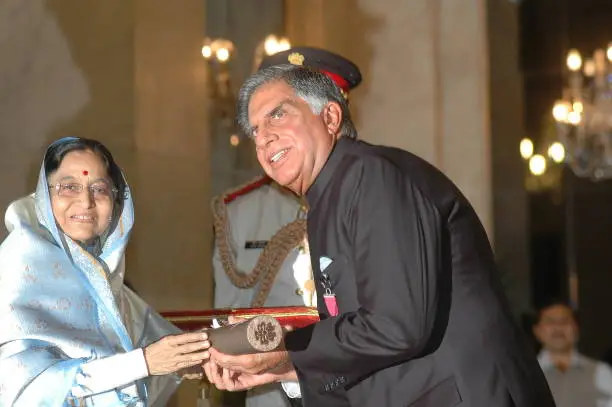
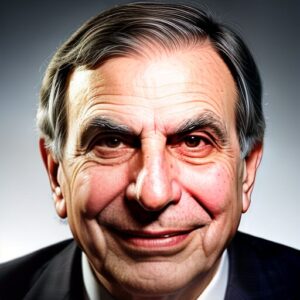

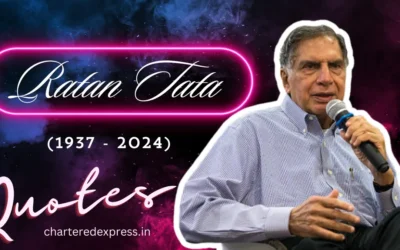
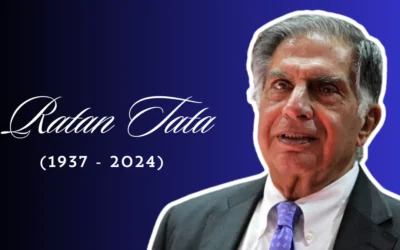







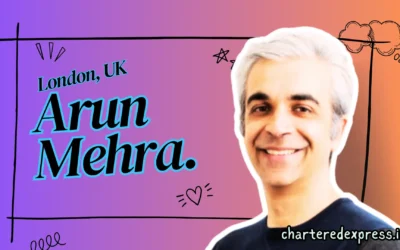


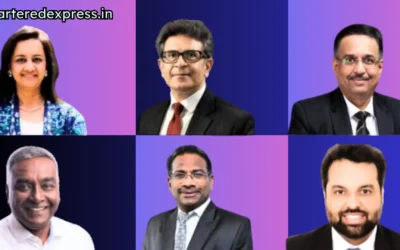
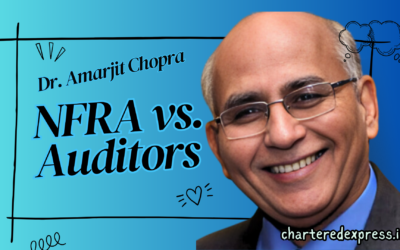

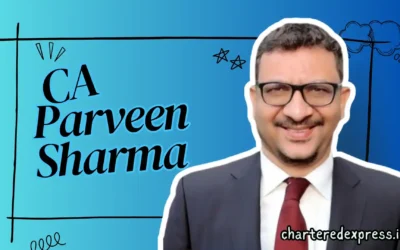





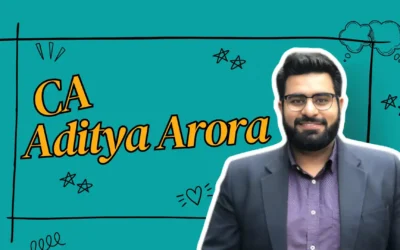




























0 Comments